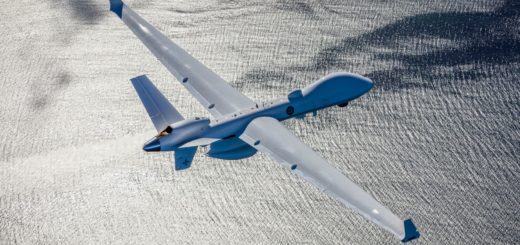Hop-A-Jet sues GE, Bombardier over fatal Florida Challenger crash
Charter company Hop-A-Jet has filed a lawsuit against GE Aerospace, Bombardier, and several maintenance providers over the 2024 crash of a Challenger 604 in Florida that killed two pilots and injured two passengers and a flight attendant.
The lawsuit, filed in US District Court for the Southern District of Florida, alleges that corrosion-related defects in the aircraft’s GE CF34-3B engines led to the dual-engine failure that forced the jet to attempt an emergency landing on Interstate 75 near Naples. The Challenger struck a sound barrier and burst into flames.
The complaint names GE Aerospace as the primary defendant, arguing that the company knew for years about corrosion issues within the CF34 engine family but failed to adequately warn operators or issue effective maintenance guidance. Bombardier, Learjet, Duncan Aviation, and Turbine Engine Specialists are also named as defendants.
Engine corrosion under scrutiny
The National Transportation Safety Board (NTSB) continues to investigate the February 2024 accident, but its preliminary report cited signs of corrosion within several engine components. According to the filing, attorneys for Hop-A-Jet claim GE’s variable guide vane system was prone to internal corrosion that could cause “hung starts” or even in-flight power loss.
Court documents reference earlier CF34 incidents involving commercial and business jets dating back to 2018. In one event, GE attributed a hung start to salt-induced corrosion and issued a service bulletin, but the lawsuit argues the advisory was too narrow and failed to alert operators of broader risks.
Hop-A-Jet’s attorneys allege that GE later revised maintenance contracts to limit corrosion coverage while continuing to “conceal known defects” in the CF34 series.
In a statement to local media, GE Aerospace expressed sympathy for the victims and said it is cooperating with investigators. “Safety is our first priority,” the company said, adding that its technical teams continue to support the NTSB’s work.
The Challenger 604, registered to a Hop-A-Jet subsidiary, was flying from Columbus, Ohio, to Naples Municipal Airport on February 9, 2024. While descending for landing, the crew reported losing power in both engines and told air traffic controllers they would not reach the runway.
Witness video captured the Challenger descending over moving traffic before skidding onto the highway, striking a barrier, and erupting in flames.
Both pilots were killed. The flight attendant and two passengers escaped with injuries after the flight attendant guided them out through the baggage compartment door amid the flames.
Claims of missed warning signs
According to the lawsuit, the aircraft had experienced multiple “hung starts” in January 2024 and received troubleshooting assistance from GE Engine Services. The engines were later returned to service after maintenance checks showed no fuel contamination or mechanical anomalies.
Hop-A-Jet contends that both Bombardier and contracted maintenance shops had opportunities to detect and address the problem during prior inspections but failed to do so. The suit claims that video borescope inspections performed by Learjet, Duncan Aviation, and Turbine Engine Specialists “missed indicators of dangerous conditions” inside the engines.
The company is seeking unspecified damages for the loss of the aircraft and the deaths of its crew members.
The case is likely to draw close attention across the business aviation and regional airline communities. The CF34 family powers hundreds of Challenger jets and regional aircraft worldwide.
GE Aerospace and Bombardier have not commented further. The NTSB’s final report on the Florida crash has not yet been released. The post Hop-A-Jet sues GE, Bombardier over fatal Florida Challenger crash appeared first on AeroTime.
Charter company Hop-A-Jet has filed a lawsuit against GE Aerospace, Bombardier, and several maintenance providers over the 2024…
The post Hop-A-Jet sues GE, Bombardier over fatal Florida Challenger crash appeared first on AeroTime.





